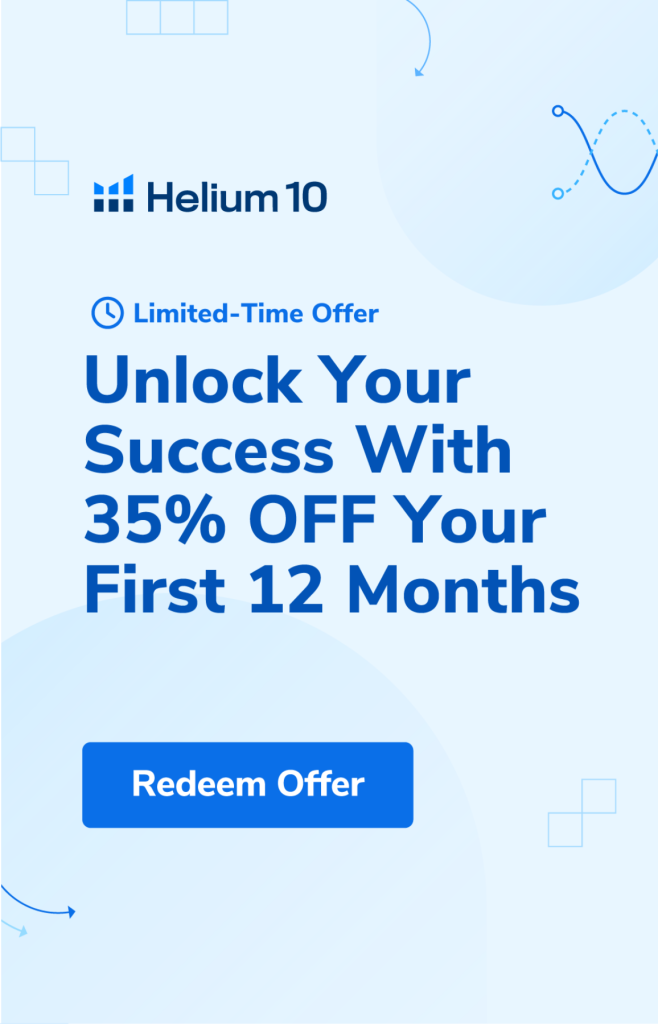Struggling to keep up with Amazon’s ever-changing algorithms or feeling isolated in your seller journey? You’re not alone.
For Amazon sellers—whether new or seasoned—staying ahead requires real-time insights and peer support. Facebook Groups bridge this gap, offering instant access to crowdsourced solutions, trend alerts, and mentorship.
This post reveals how to tap into these communities, where members share tactics for FBA logistics, PPC hacks, and niche strategies. Discover how joining the right groups can transform confusion into clarity and isolation into collaboration.
Let’s dive into finding (and leveraging) the best Facebook Groups to fuel your Amazon success.
Why Joining A Facebook Group For Amazon Sellers Helps (Benefits)
In the increasingly competitive Amazon marketplace, sellers need every advantage. Facebook groups have emerged as influential hubs for information exchange, problem-solving, and relationship building.
Over 1.1 Million Amazon Sellers in the United States alone prove this is a growing community. This community can offer benefits that even paid courses sometimes can’t match, i.e., real-world experiences and real-time solutions from those in the trenches.
1. Networking Opportunities
Facebook groups connect you with sellers across different experience levels, from beginners to 8-figure brands. These connections can lead to partnerships, mentorships, and even business opportunities.
Many successful Amazon sellers report finding their business partners, suppliers, or service providers through connections made in these communities.
2. Knowledge Sharing And Learning
Groups serve as living, breathing knowledge bases where sellers share their experiences, strategies, and tools. When a new Amazon update rolls out, these groups are often the first place where practical implications are discussed.
You can learn about effective launch strategies, PPC optimization techniques, and supplier negotiations—often from sellers who have tested these approaches extensively.
3. Quick Problem-Solving And Support
When facing an urgent issue like an account suspension or inventory problem, waiting for Amazon support can be frustrating.
In active Facebook groups, you can often get answers within minutes from sellers who’ve navigated similar situations. This real-time support can be the difference between a minor setback and a major business disruption.
4. Market Research And Feedback
These communities provide a free focus group for testing product ideas, getting feedback on listings, or understanding market trends.
Many sellers use groups to gauge interest in potential products or to understand common pain points in specific niches.
What Are Some Types Of Facebook Groups You Will Find?
The Amazon seller community on Facebook isn’t monolithic—it’s divided into various specialized groups catering to different business models, experience levels, and interests.
Understanding these distinctions can help you choose communities that align with your specific needs and avoid wasting time in groups that don’t serve your business goals.
General Amazon Seller Groups
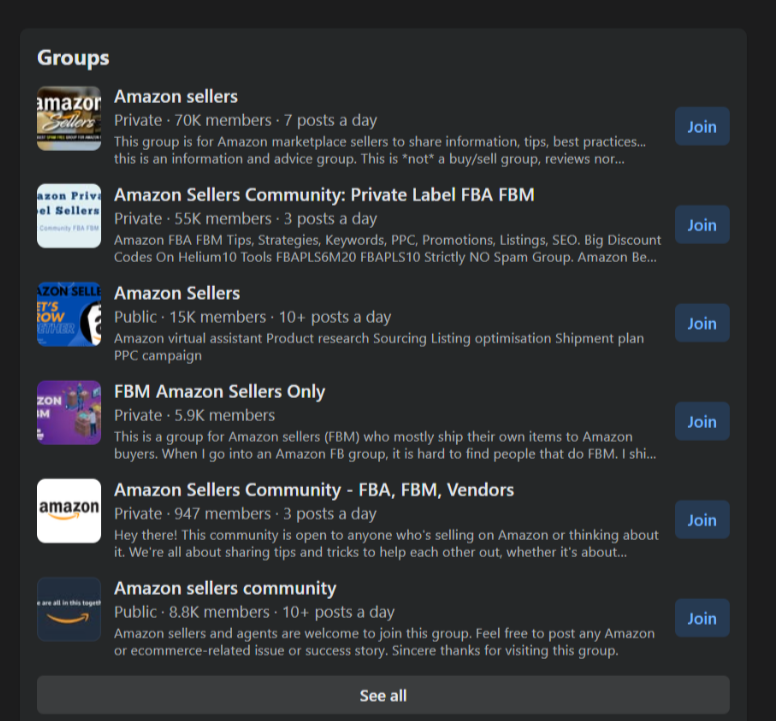
These groups cover all aspects of selling on Amazon and welcome sellers of all business models. They’re excellent starting points for beginners and provide diverse perspectives on common challenges. Examples include “Amazon FBA Heroes” and “Amazon Sellers Community.”
Niche-Specific Groups
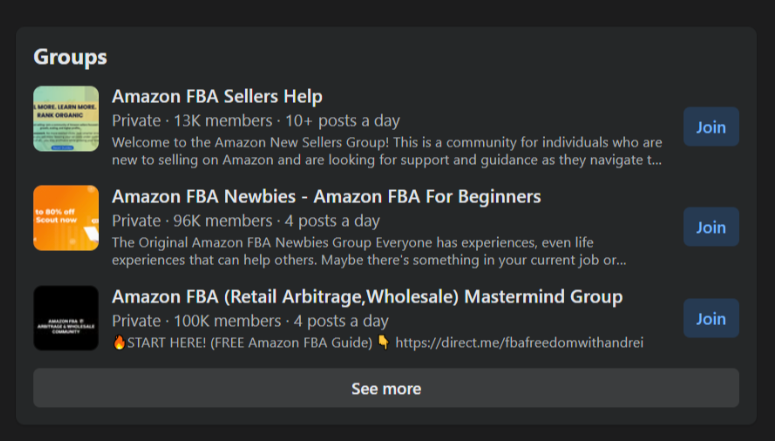
These focus on particular business models like private label, wholesale, or retail arbitrage. Others might cater to specific product categories or strategies. “Private Label Masters” and “Amazon FBA Wholesale Sellers” are examples of such specialized communities.
Software-Specific Groups
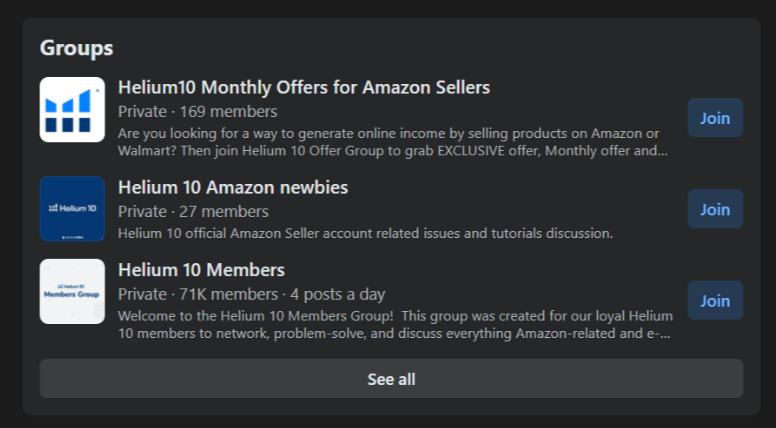
Many Amazon seller tools host dedicated Facebook groups for their users. Groups like “Helium 10 Members” offer specialized support for software users while also providing broader Amazon selling advice.
Location-Based Groups
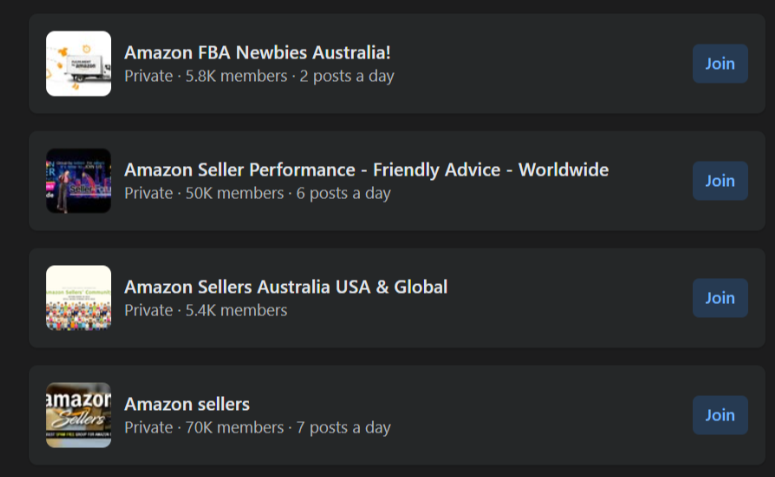
These communities focus on sellers from specific countries or regions, addressing market-specific challenges like VAT in Europe or shipping logistics in Australia. “Amazon Sellers Australia” and “Amazon FBA UK Sellers Group” are prime examples.
Most Active Amazon Seller Facebook Groups
Finding the right community can significantly impact your Amazon selling journey. The following groups have demonstrated consistent value, active moderation, and high-quality discussions.
Each offers a unique perspective and community culture, allowing you to choose based on your specific needs and business stage.
1. MySilentTeam.com
- Created on: August 2013
- Founder: Jim Cockrum
- Members: 79,162+
- Posting Frequency: 20-25 posts daily
This group has evolved into one of the most established and respected communities in the Amazon seller space. Jim Cockrum, a renowned Amazon entrepreneur and author, created this group as a place for FBA sellers of all levels.
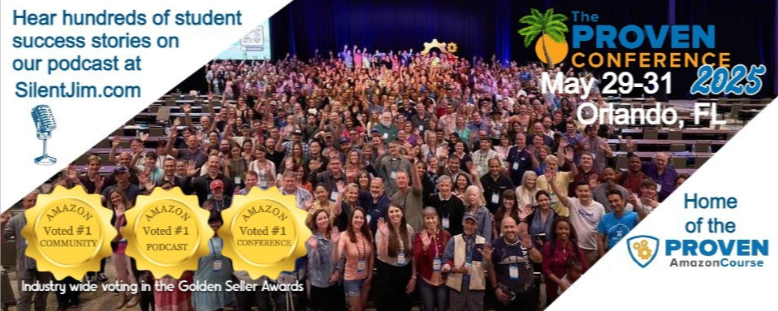
What makes this group particularly valuable is its focus on proven, sustainable business practices rather than short-term tactics. The community is known for being supportive and encouraging to newcomers while still providing advanced strategies for experienced sellers.
Join the Amazon Seller Facebook Group here.
2. Helium 10 Members
- Created on: 2016
- Founder: Helium 10 Amazon Seller Tools
- Members: 71,410+
- Posting Frequency: 30+ posts daily
This highly active group is moderated by Helium 10 experts and focuses on all aspects of using data to drive Amazon selling decisions. What sets this group apart is the quality of technical discussions around keyword research, PPC optimization, and listing improvements.
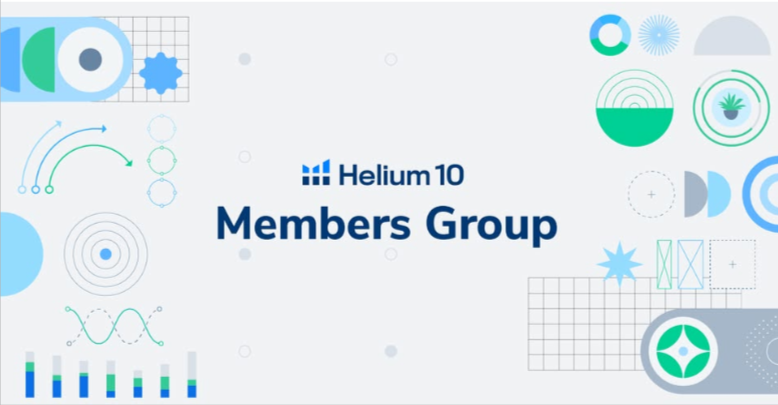
Even if you’re not a paid Helium 10 user, you can join as a free member and still access valuable conversations. The group regularly features input from seasoned Amazon experts and the company’s in-house specialists.
Join the Amazon Seller Facebook Group here.
3. Titans Of Amazon FBA
- Created on: 2019
- Founders: Dan Ashburn and Athena Sevari
- Members: 85,274+
- Posting Frequency: 15-20 posts daily
The Titan Network targets advanced sellers with 6-7 figure revenues who are looking to scale their businesses with an exit strategy in mind. This group stands out for its focus on high-level business strategy rather than tactical day-to-day operations.
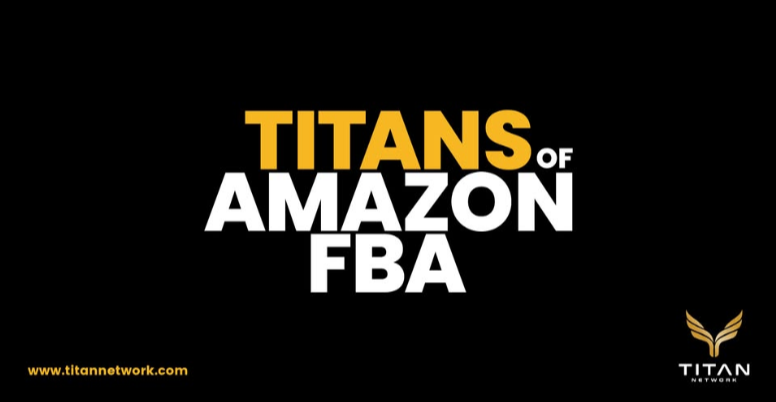
The community emphasizes networking and in-person events, creating deeper connections among members. While there’s a paid component to joining the full Titan Network, their Facebook group provides a taste of their community culture.
Join the Amazon Seller Facebook Group here.
4. Amazon FBA High Rollers
- Created on: 2016
- Founder: Manny Coats (related to AM/PM Podcast)
- Members: 76,487+
- Posting Frequency: 20+ posts daily
This group serves as a discussion forum for listeners of the AM/PM Podcast and has grown into a robust community of sellers at various levels. What makes this group valuable is the diverse range of topics covered—from beginner questions to advanced strategies.
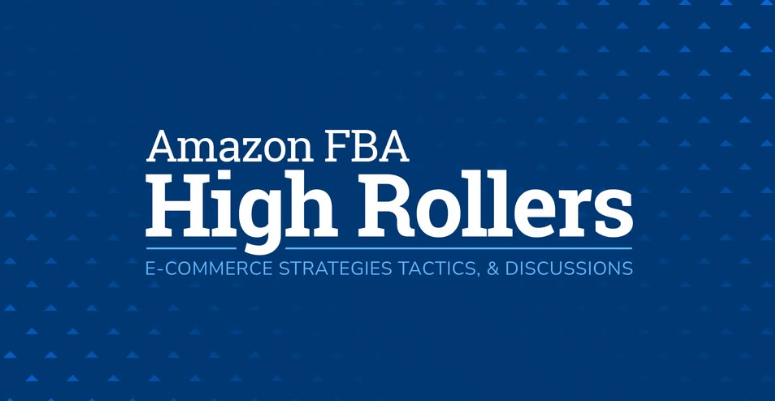
The moderators maintain a good balance between allowing open discussion and preventing spam or self-promotion, resulting in a high signal-to-noise ratio.
Join the Amazon Seller Facebook Group here.
5. Amazon PPC Tips & Tricks
- Created on: 2018
- Founder: Brian Johnson
- Members: 45,020+
- Posting Frequency: 10-15 posts daily
Specializing in Amazon advertising strategies, this group focuses exclusively on PPC campaigns, sponsored products, and other advertising options. Members share campaign screenshots, discuss strategy changes, and analyze the impact of Amazon’s frequent advertising platform updates.
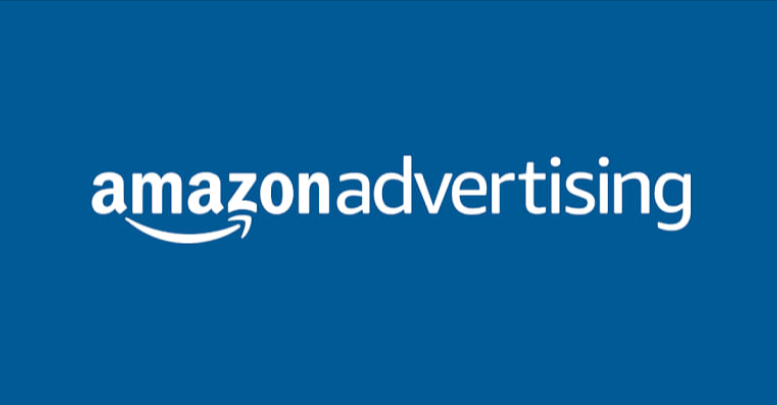
The highly specialized nature of this group makes it invaluable for sellers looking to optimize their advertising spend.
Join the Amazon Seller Facebook Group here.
6. AI & ChatGPT – The Future of Amazon Selling
- Created on: 2023
- Founder: Unknown
- Members: 24,714+
- Posting Frequency: 15+ posts daily
One of the newer groups gaining significant traction, this community focuses on leveraging AI tools and ChatGPT for Amazon businesses. Members discuss using AI for product research, listing optimization, customer service automation, and marketing copy.
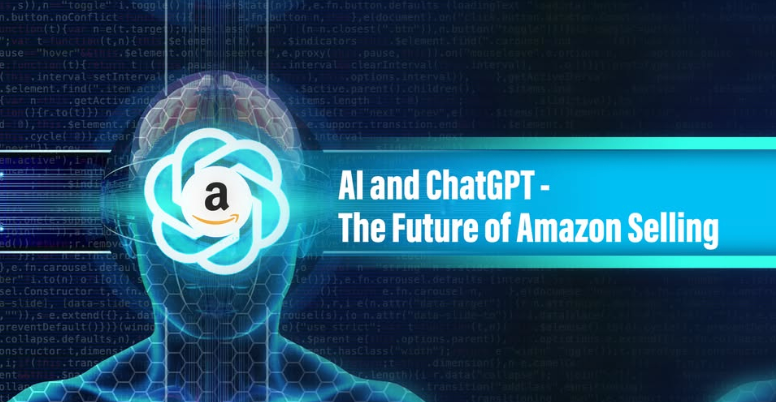
As AI becomes increasingly central to e-commerce operations, this group provides cutting-edge strategies that can give sellers a competitive advantage.
Join the Amazon Seller Facebook Group here.
7. Amazon Seller Performance – Friendly Advice
- Created on: 2018
- Founder: Unknown
- Members: 50,300+
- Posting Frequency: 25+ posts daily
This group specializes in account health issues, suspensions, and dealing with Amazon’s compliance requirements. The community includes many experienced sellers who have successfully navigated account challenges, as well as some consultants who specialize in account reinstatements.
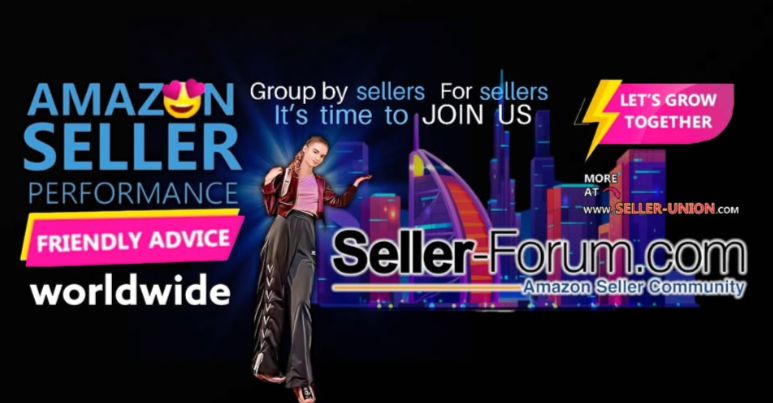
For sellers facing account issues, this group can provide crucial guidance during high-stress situations.
Join the Amazon Seller Facebook Group here.
How To Find The Right Facebook Group For Amazon Sellers
With hundreds of Amazon seller groups available, finding the ones that truly add value to your business can be challenging. The process requires some research and patience, but joining the right communities can save you countless hours and potentially costly mistakes.
Here’s how to identify groups worth your time and energy.
Search Strategies
Start by using specific keywords in Facebook’s search bar like “Amazon FBA,” “Amazon private label,” or “Amazon wholesale,” depending on your business model. Add modifiers like “beginners,” “advanced,” or your country’s name to narrow results.
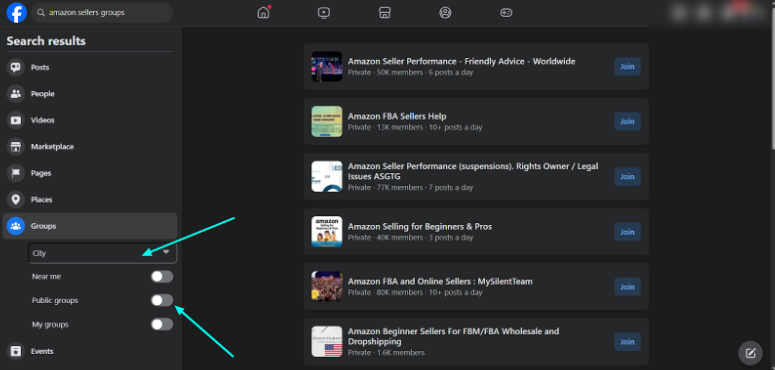
Follow respected Amazon influencers and check which groups they recommend or manage. Several websites also compile and review Amazon seller Facebook groups, including RepricerExpress, RevenueGeeks, and Orange Klik.
Evaluating Groups
Before joining, check the group’s activity level—look for multiple daily posts and engagement on those posts. Read the group’s rules and description to understand its focus and acceptable behavior.
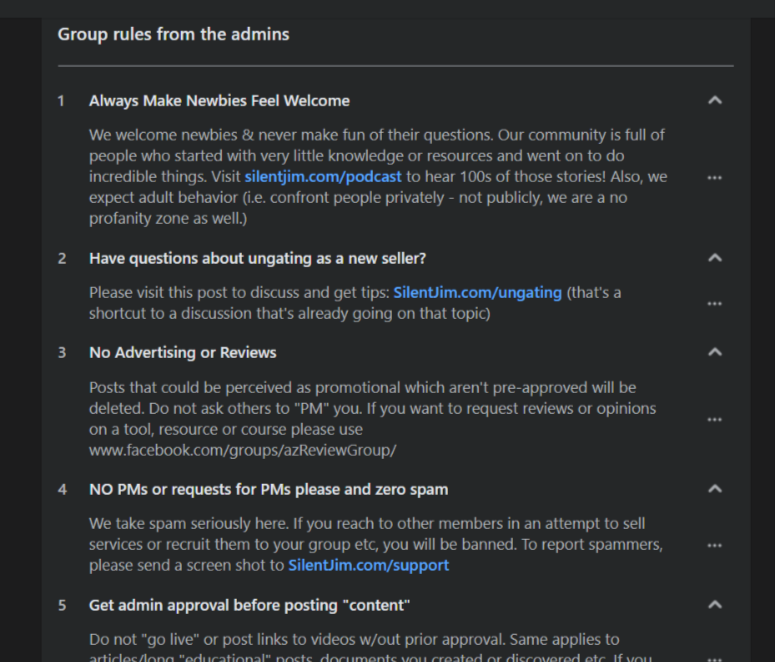
Review recent discussions to gauge the quality of information shared and the expertise level of active members. Research the admins and moderators to verify their seller credentials or industry experience.
Joining And Participating
When requesting to join, complete all questionnaires thoroughly—these help admins filter out spammers. Once accepted, take time to observe the group dynamics before posting.
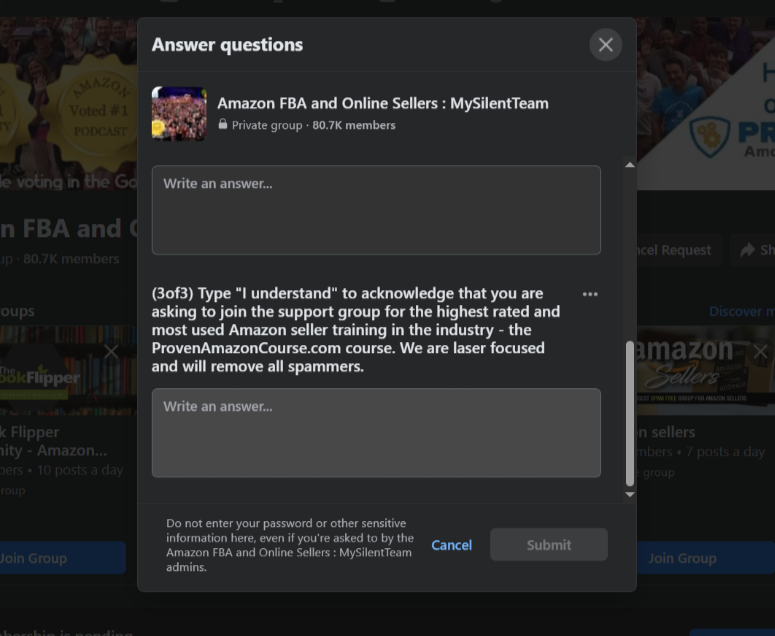
When you do participate, start by introducing yourself and your business stage. Consistently engage by commenting helpfully on others’ posts before asking your own questions.
Pro GoFba Tip: Finding an Amazon Seller Group on Facebook can be limited, as I faced it myself. A hack you can use is to paste this on your “Google Search tab” – site:facebook.com “Amazon FBA” group to get all Amazon Seller Group related results.
Alternatives To Amazon Seller Facebook Groups
While Facebook groups offer accessible communities, alternatives exist for sellers seeking different engagement formats. Discord servers like the FulfillmentByAmazon subreddit’s Discord provide real-time chat environments with verified seller channels based on revenue tiers.
These platforms often foster more direct, immediate conversations compared to Facebook’s post-and-comment structure.
Paid membership communities can also offer more curated experiences with stricter vetting of members.
These typically include additional benefits beyond discussions, such as sourcing leads, proprietary tools, and direct access to experts.
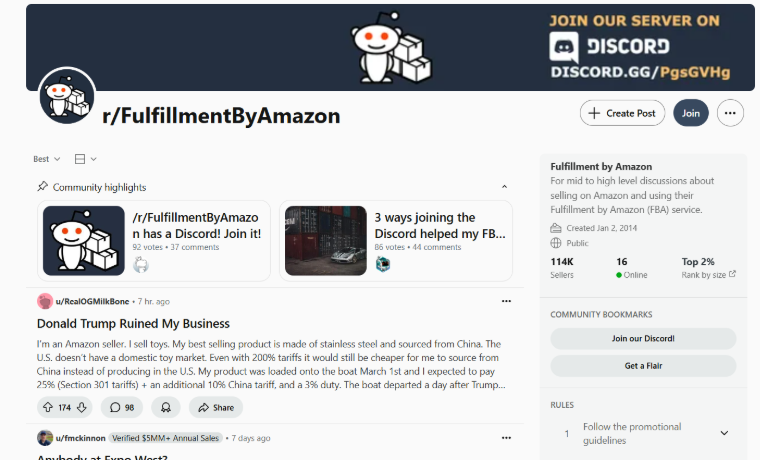
For serious sellers, Reddit’s r/FulfillmentByAmazon subreddit provides a more anonymous forum where sellers can discuss sensitive business topics without revealing their identities.
Things To Know When Engaging With Amazon Seller Groups On Facebook
Being part of a Facebook group is just the beginning—how you participate determines the value you’ll extract. Successful engagement requires understanding group dynamics, contributing meaningfully, and managing your time effectively.
The following guidelines will help you become a valued community member while protecting your time and business interests.
- Provide Value: Share your knowledge before asking for help. Contributing resources like guides or templates builds your reputation and makes others more willing to assist you later.
- Ask Thoughtful Questions: Frame questions with a specific context and show you’ve done initial research. This approach respects others’ time and increases your chances of receiving helpful answers.
- Avoid Self-Promotion: Follow group rules about promotion. Contribute genuine value rather than disguised pitches, only mentioning your services when explicitly requested or permitted.
- Be Respectful and Professional: Remember that your online activity creates a lasting impression. Maintain professionalism in all interactions, as the Amazon seller community is surprisingly interconnected.
- Manage Information Overload: Be selective about which groups you join and use Facebook’s notification filters. Schedule specific times to engage rather than constantly monitoring all groups.
- Beware of Misinformation: Verify information across multiple sources before implementation. Be cautious of unrealistic promises and unsolicited private messages offering account services.
- Practice Time Management: Set boundaries for social media usage with time-limiting tools. Consider delegating group monitoring if it’s consuming too much of your productive business time.
Related Reads:
Conclusion: Finding Your Amazon Seller Community on Facebook
Facebook groups have become an essential resource in the Amazon seller ecosystem, offering real-time support, insider knowledge, and valuable connections that can significantly impact your business trajectory.
The right groups can serve as a safety net during challenges and a launchpad for growth opportunities.
As you integrate these communities into your business strategy, remember that their value comes from balanced participation—contributing your knowledge while strategically seeking insights that advance your goals.
The relationships you build may prove more valuable than any tactical advice you receive.
Start by joining 2-3 groups that align with your business model and actively participate for at least a month before expanding your community involvement.
As your Amazon business evolves, so too should your community engagement strategy—graduating from general groups to more specialized communities as your expertise deepens.

